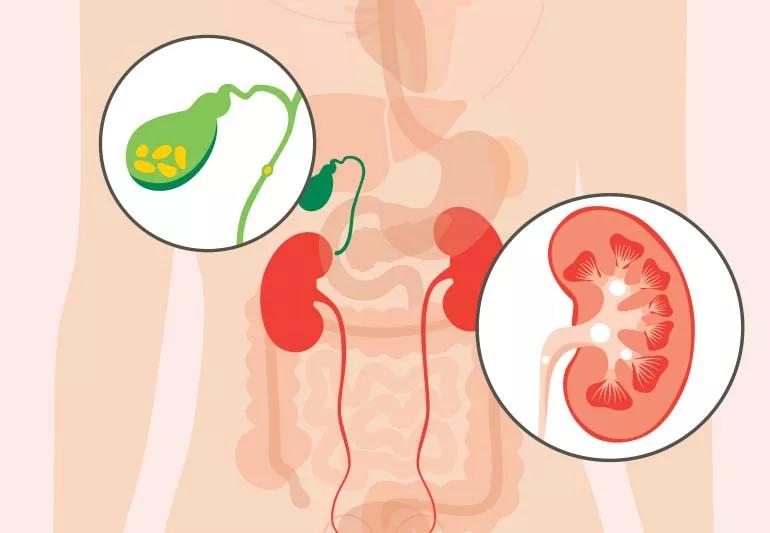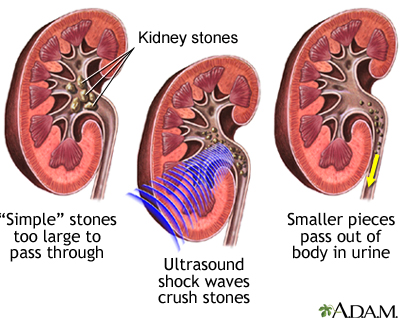Navigating the Signs of Kidney Stones vs UTI: An In-depth Contrast
Wiki Article
Discovering the Symptoms and Causes of Kidney Stones in Contrast to Urinary System Tract Infections: A Thorough Guide
The expedition of kidney stones and urinary system infections (UTIs) reveals a complicated interaction of symptoms and underlying reasons that necessitate careful assessment. While both conditions can result in hematuria, they offer distinct medical attributes and arise from different etiological elements. Recognizing the subtleties of each problem is important for reliable diagnosis and management. What are the crucial distinctions in their signs and symptoms, and how might these notify therapy approaches? The response to these questions might provide crucial insights into the avoidance and care of these typical urological concerns.Review of Kidney Stones
Kidney rocks, additionally called kidney calculi, type when specific compounds in the urine crystallize and aggregate, resulting in the advancement of hard deposits within the kidneys. These rocks can differ in dimension, varying from a grain of sand to a golf sphere, and can be composed of different materials, the most common being calcium oxalate, uric acid, struvite, and cystine. The development of kidney rocks is influenced by several elements, including nutritional behaviors, fluid intake, and genetic predisposition.Signs and symptoms of kidney rocks may include extreme discomfort in the back or side, blood in the urine, nausea, and constant peeing, especially as the stone relocates with the urinary tract. Medical diagnosis normally includes imaging studies such as ultrasound or CT scans, alongside urinalysis to recognize the stone's composition.
Treatment options differ based on the size and type of stone, along with the severity of signs (Kidney Stones vs UTI). Little rocks may pass normally with increased fluid consumption, while larger rocks may need clinical treatments such as lithotripsy or medical removal. Recognizing the pathophysiology and danger factors related to kidney stones is important for reliable avoidance and administration
Overview of Urinary System Infections
Urinary system tract infections (UTIs) are typical microbial infections that influence any part of the urinary system, including the kidneys, ureters, bladder, and urethra. They mainly occur when bacteria, commonly from the stomach tract, enter the urinary system, leading to inflammation and infection.The occurrence of UTIs is significantly greater in females than males, primarily as a result of physiological distinctions, such as a shorter urethra. Risk elements include sex, specific contraceptive techniques, urinary system retention, and dehydration. The medical diagnosis of UTIs is normally validated via pee examinations, which might disclose the visibility of microorganisms, leukocyte, or red cell.

Signs And Symptoms of Kidney Stones
The pain related to kidney stones can manifest in numerous means, commonly leading people to seek medical focus. Among the most common signs and symptoms is extreme pain, usually localized in the reduced back or side, which may radiate to the abdomen or groin. This discomfort, usually referred to as sharp or cramping, can happen suddenly and might change in intensity.In addition, people might experience hematuria, or blood in the pee, which can range from microscopic quantities to visible staining. This sign may be come with by modifications in urinary routines, such as enhanced regularity or seriousness, as well as pain during peeing. Queasiness and throwing up are likewise widespread, commonly resulting from the body's response to intense discomfort.
In many cases, people may experience fever and cools, specifically if a second infection establishes as a result of the obstruction triggered by the stones. In general, the mix of extreme discomfort, hematuria, transformed urinary patterns, and intestinal signs can supply significant insight right into the presence of kidney stones, calling for punctual medical assessment and treatment. Understanding these signs is vital for prompt diagnosis and effective administration of the problem.
Signs And Symptoms of Urinary System System Infections
Infections within the urinary system system frequently provide an array of distinctive symptoms that can considerably affect day-to-day live. One of the most usual signs and symptoms consist of a persistent impulse to urinate, usually come with by a burning experience throughout peeing, referred to as dysuria. People might additionally experience boosted regularity of peeing, creating i thought about this little amounts of urine each time.Other noteworthy signs include foul-smelling or cloudy pee, which might suggest the existence of bacteria or pus. In some cases, urine might appear red or pink as a result of the visibility of blood, a problem referred to as hematuria. Additionally, individuals might experience pelvic pain or pressure, which can further aggravate the sensation of seriousness.
Systemic symptoms may additionally manifest, such as high temperature, chills, and fatigue, specifically if the infection has actually ascended to the kidneys. It is necessary to recognize these signs and symptoms early, as without treatment urinary system system infections can cause much more severe difficulties. Kidney Stones vs UTI. Trigger medical focus is recommended when these symptoms are observed, permitting suitable analysis examination and treatment to relieve pain and avoid more health and wellness issues
Reasons For Each Condition
Often, kidney stones and urinary system system infections develop from distinct yet often overlapping causes that can impact people in a different way. Kidney rocks usually form because of metabolic factors, dietary selections, and genetic tendencies. Increased levels of calcium, oxalate, or uric acid in the pee can lead to stone development. Dehydration, insufficient liquid intake, and high-sodium diet plans can aggravate these conditions, advertising formation within the urinary tract.
Recognizing these distinctive reasons is important for prevention and treatment. Kidney Stones vs UTI. While lifestyle alterations might alleviate the danger of kidney stones, appropriate health and timely treatment of urinary system infections are crucial for minimizing their reoccurrence and associated complications
Verdict
In summary, kidney rocks and urinary system infections existing distinctive signs and symptoms and underlying causes. Kidney rocks are characterized by extreme pain and metabolic aspects, while urinary tract infections largely involve microbial infections leading to urinary seriousness and pain.The exploration of kidney stones and urinary system tract infections (UTIs) exposes an intricate interplay of signs and underlying reasons that require cautious examination.Urinary system infections (UTIs) are usual bacterial infections that impact any kind of part Read Full Report of the urinary system, including the kidneys, ureters, bladder, and urethra.Regularly, kidney rocks and urinary tract infections develop from distinctive yet in some cases overlapping causes that can influence people differently.In summary, kidney rocks and urinary system system infections present distinct signs and underlying reasons. Kidney blog here rocks are identified by severe pain and metabolic elements, while urinary system infections mostly entail microbial infections leading to urinary urgency and discomfort.
Report this wiki page